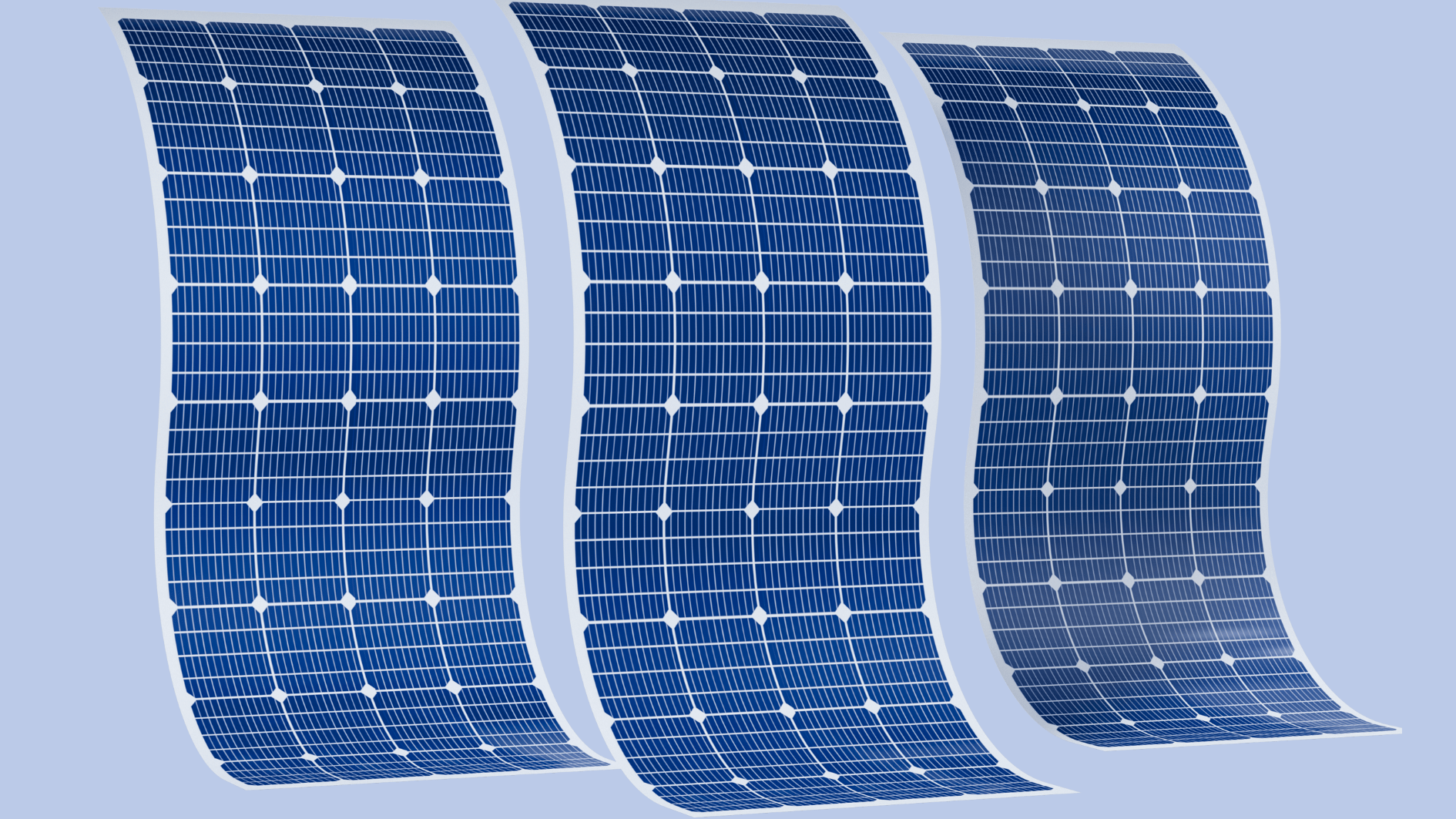Image source: Canva.com
Flexible solar panels are an innovative advancement in solar technology, offering a range of applications that traditional, rigid solar panels may not. Their unique properties make them suitable for various uses, from portable energy solutions to unconventional installations. This article explores the benefits and applications of flexible solar panels, highlighting how they can be utilized in diverse scenarios.
What Are Flexible Solar Panels?
Flexible solar panels are lightweight, bendable panels made from thin-film photovoltaic (PV) materials, such as amorphous silicon, cadmium telluride, or copper indium gallium selenide (CIGS). Unlike traditional solar panels, which are made from rigid glass and aluminum, flexible panels are constructed on flexible substrates, allowing them to be curved or shaped to fit different surfaces.
Key Benefits of Flexible Solar Panels
Lightweight and Portable
Flexible solar panels are significantly lighter than their rigid counterparts. This makes them ideal for portable applications, where weight is a critical factor. They can be easily carried and deployed in various settings, from camping trips to emergency situations.
Versatile Installation
Due to their flexibility, these panels can be installed on a wide range of surfaces, including curved or irregularly shaped ones. This versatility allows for creative installations on surfaces where traditional panels might be impractical, such as RV roofs, boats, or curved architectural elements.
Ease of Integration
Flexible solar panels can be integrated into different materials and products, making them suitable for use in products like solar-powered backpacks, tents, or even clothing. Their ability to conform to various shapes and surfaces means they can be incorporated into a wide array of applications.
Durability and Flexibility
Modern flexible solar panels are designed to be robust and durable, able to withstand various environmental conditions. Their flexibility allows them to absorb impacts and vibrations, making them suitable for use in environments where traditional panels might be at risk of damage.
Aesthetic Appeal
The sleek and minimalistic design of flexible solar panels can enhance the visual appeal of solar installations. They can be integrated into building materials, vehicle surfaces, or other applications without the bulky appearance of traditional panels.
Applications of Flexible Solar Panels
Portable Power Solutions
Flexible solar panels are ideal for portable energy solutions. They are commonly used in:
Camping Gear
Portable solar chargers and power packs for camping and outdoor activities.
Emergency Kits
Solar panels for emergency preparedness kits to provide power during outages or in remote locations.
Outdoor Adventures
Solar-powered devices for hiking, backpacking, or off-grid living.
Renewable Energy for RVs and Boats
The lightweight and bendable nature of flexible solar panels makes them well-suited for RVs, boats, and other recreational vehicles. They can be mounted on curved or irregular surfaces, optimizing the use of available space and providing a reliable source of energy while traveling.
Solar-Powered Products
Flexible solar panels can be integrated into a variety of consumer products, such as:
Solar Backpacks
Bags with built-in solar panels to charge electronic devices on the go.
Solar Clothing
Jackets or accessories equipped with solar panels for powering small devices.
Solar Tents
Tents with integrated solar panels to provide lighting and power for camping.
Architectural and Building Integration
Flexible solar panels can be incorporated into building materials and architectural designs, including:
Building-Integrated Photovoltaics (BIPV)
Panels integrated into building materials like roof shingles or facade elements.
Curved Surfaces
Solar panels mounted on curved or irregularly shaped surfaces of modern architecture.
Military and Industrial Applications
The durability and flexibility of these panels make them suitable for military and industrial uses:
Military Gear
Portable solar solutions for field operations and remote bases.
Industrial Equipment
Solar panels integrated into equipment or machinery that requires flexible or mobile energy sources.
Considerations When Using Flexible Solar Panels
Efficiency
Flexible solar panels generally have lower efficiency compared to traditional rigid panels. This means they may require a larger surface area to produce the same amount of energy, which can be a factor in applications where space is limited.
Cost
The technology used in flexible solar panels can be more expensive than traditional panels. While prices are decreasing, it’s essential to consider the cost relative to the benefits and specific application needs.
Longevity and Performance
Flexible panels may have a shorter lifespan and lower performance under certain conditions compared to rigid panels. It’s important to evaluate the durability and expected performance based on your specific use case.
Installation and Maintenance
While flexible panels can be easier to install on unconventional surfaces, they still require proper installation to ensure optimal performance and longevity. Regular maintenance and inspection are necessary to keep them functioning effectively.
Flexible solar panels offer a range of innovative applications and benefits, particularly in scenarios where traditional panels may not be practical. Their lightweight, versatile, and bendable nature makes them suitable for portable energy solutions, recreational vehicles, solar-powered products, and architectural integration. By understanding the advantages and limitations of flexible solar panels, you can make informed decisions about incorporating them into your energy solutions, enhancing both functionality and aesthetics in various applications.





